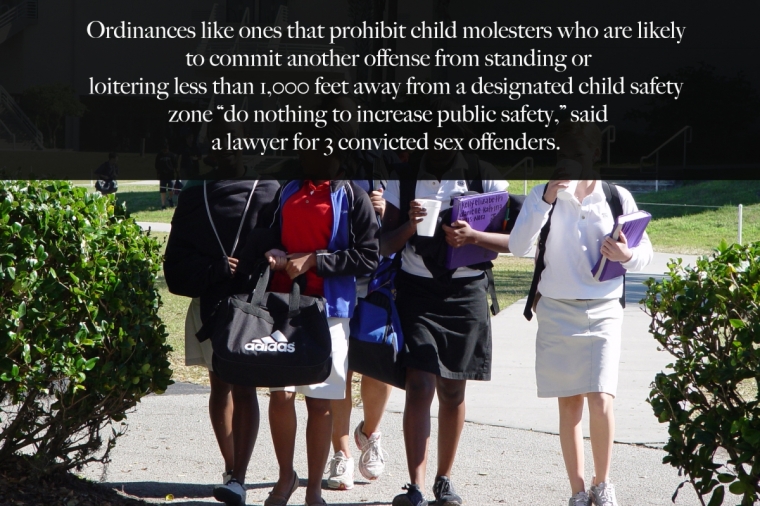Sex offenders living close to children helps them to rehabilitate, lawyer says

BOSTON (Christian Examiner) – Sex offenders might soon be able to live close to schools, churches and other designated child safety zones thanks to a Massachusetts court that last week sided with three sex offenders who argued rules limiting their exposure to children could inhibit their chances at complete rehabilitation.
In its opinion published Friday, the Supreme Judicial Court of Massachusetts (SJC) ruled that a 2011 ordinance of the city of Lynn, which placed residential restrictions on sex offenders, was unconstitutional.
The Lynn ordinance provided that level two and level three sex offenders—those deemed most likely to repeat offense—may not reside in an area within 1,000 feet of a school or park. Because "school" meant all public, private and church schools, the exclusion zone included 95 per cent of the residential properties in Lynn.
The SJC decision has far-reaching implications for other towns with similar residential restriction ordinances, like Marlborough and about 40 other Massachusetts communities.
Marlborough Mayor Arthur Vigeant told MetroWest Daily News, "I am very disappointed by today's ruling because I believe ordinances like the one we have in Marlborough help protect the public from sex offenders."
The court said the ordinance was not merely overly restrictive but argued it is unnecessary in its intention as well as its scope.
In the opinion, Justice Geraldine S. Hines wrote about the "grave" implications of residential segregation: "Except for the incarceration of persons under the criminal law and the civil commitment of mentally ill or dangerous persons, the days are long since past when whole communities of persons, such [as] Native Americans and Japanese-Americans may be lawfully banished from our midst."
According to the ordinance, the 212 level two and level three sex offenders in Lynn were even prohibited from loitering, or standing less than 1,000 feet away for more than 10 minutes, in designated child safety zones.
"I think it's fair to say that the SJC has kind of saved Lynn specifically, but [also] people of other towns that have similar ordinances, from their, perhaps, well-intentioned, but misguided impulses," Benjamin H. Keehn, the plaintiffs' lawyer, said.
The three plaintiffs sued the city of Lynn using pseudonyms because they are registered sex offenders.
The ordinance required registered sex offenders to move out of restricted areas within 30 days and assigned a $300 per day penalty to anyone who did not comply.
Keehn argued that such narrow restrictions prevent rehabilitation. "These ordinances do nothing to increase public safety," he said.
Because the ruling has implications for other communities, the state Attorney General's office will be contacting places like Marlborough to inform them they might be in conflict with state law. A spokesperson for the Attorney General's office commented, "Before today's decision, there was no such clear conflict."
The SJC's decision raises numerous questions about the legality of city residential restrictions and the liberties of sex offenders who are classified based on the Sex Offender Registry Board's assessment of their risk to the public.